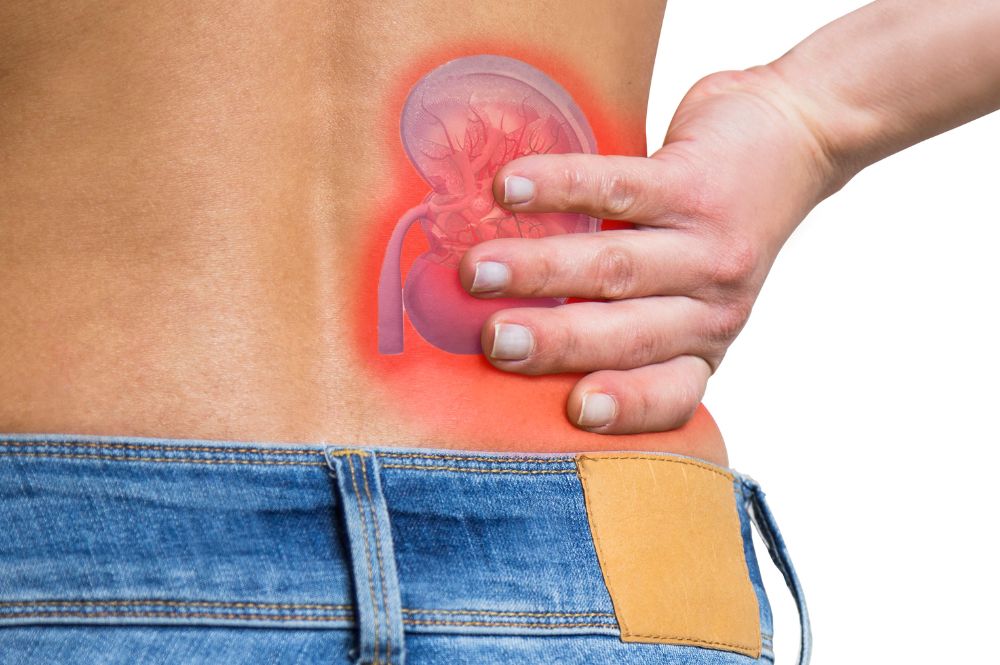Services
Stone Surgery in Dubai, UAE by Dr. Mohammed Shahait – Expert care for kidney stones and urological conditions. Our urologists can treat a wide range of urological conditions, such as: Kidney Stones, Enlarged Prostate (BPH), Elevated PSA, Blood in Urine, Prostate Cancer, Kidney Cancer, Bladder Cancer & Testicular Cancer. Trusted stone specialist in UAE for advanced treatment.
Stone Surgery In Dubai,UAE
Kidney stones are a commonplace and painful urological condition, affecting tens of millions of human beings yearly. When the discomfort turns into insupportable and non-invasive treatments are ineffective, a kidney stone surgical procedure emerges as a viable answer.
This comprehensive manual will explore the world of stone surgery in Dubai, UAE, empowering sufferers with the expertise needed to make knowledgeable decisions, assemble the process, and recover effectively.
01. Benefits Of Stone Surgery
Immediate Symptom Relief
Prevention of Further Damage
Improved Quality of Life
Long-Term Health Benefits
02. Common Types of Kidney Stones
Calcium Stones
Struvite Stones
Uric Acid Stones
Cystine Stones
03. Stone Surgery Procedures
Extracorporeal Shock Wave Lithotripsy (ESWL)
Ureteroscopy
Percutaneous Nephrolithotomy (PCNL)
Stone Removal
Open Surgery
Kidney Stones Unveiled: Identifying the Culprits
Kidney stones are like tiny rock formations floating around or stuck to the internal walls of your kidneys. They’re made of minerals and substances that occur in your body. These stones form when there is too much of these minerals in your urine, sometimes requiring stone surgery in Dubai, UAE for removal.
The most critical factor in most stones is calcium oxalate, which commonly builds on a base of Randall’s plaques found on the kidney walls. It’s common to develop these stones, with about 15% of people experiencing them. If untreated, they may grow larger, leading to severe pain and potential complications that necessitate stone surgery in Dubai, UAE to prevent further kidney damage.
Once you get a kidney stone, there’s a high chance it could return within five years. Factors like obesity, diabetes, high blood pressure, or metabolic syndrome can increase your risk of developing kidney stones. These conditions may lead to further issues, including chronic kidney problems or even kidney failure, making stone surgery in Dubai, UAE an essential option for those suffering from recurrent or severe kidney stones.
Common Types of Kidney Stones
Calcium Stones: These are calcium oxalate products with positive ingredients. They’re the most commonplace kind of kidney stone.
Struvite Stones: These can pop up if you have a urinary tract contamination (UTI), and they can get quite massive, taking on your kidney rapidly.
Uric Acid Stones: These can shape if you eat a variety of proteins or have fitness issues that mess with your uric acid degrees.
Cystine Stones: These are brilliant and uncommon and usually run in households. They happen because of a genetic difficulty.
The Science of Stone Surgery: A Look Inside Treatment Options
Surgical Solutions
When other techniques do not do the trick or the stone is too big to skip on its own, surgery is the way to move. Surgeons have a few alternatives to choose from:
- Ureteroscopy (URS): They slide a skinny tube with a digicam through your urethra and bladder to your ureter, where the stone is. This works well for stones stuck within the ureter.
- Percutaneous Nephrolithotomy (PCNL): If you have a big stone, they will make a small cut in your lower back to take it out.
- Open Surgery: Sometimes, in particular, if the stone is massive or complex, they might need to do traditional open surgical treatment (nephrolithotomy).
What to Expect on the Day of Surgery
On the day of your technique, you will follow some unique commands:
- Fasting: You’ll likely avoid ingesting or consuming whatever for numerous hours before the surgical treatment.
- Medication: Your doctor may ask you to prevent taking certain medicines during the days leading up to the surgical operation.
- Hospital Arrival: Make sure to reach the health center at the scheduled time and convey all necessary documents and information to you.
- Anesthesia: You’ll obtain anesthesia, which can be general (places you to sleep) or spinal (numbs you from the waist down).
Benefits Of Stone Surgery
Undergoing stone surgical procedure gives several significant advantages:
- Immediate Symptom Relief: Stone surgical treatment affords brief alleviation from the acute pain and soreness resulting from kidney stones. Patients often experience significant or complete remedies after healing.
- Prevention of Further Damage: By disposing of stones that block the urinary tract, stone surgery prevents extra harm to the kidneys and other urinary organs, reducing the chance of severe headaches.
- Improved Quality of Life: Removing kidney stones substantially enhances a patient’s pleasant lifestyle. It permits them to renew their day-by-day sports, paintings, and pursuits without the regular fear and pain of kidney stones.
- Long-Term Health Benefits: Successful stone surgical treatment and postoperative care can improve long-term fitness. By getting rid of stones and making way of life modifications, patients can lower the risk of destiny stone formation, ensuring more healthy kidney characteristics in the end.
Your Path to Renewed Health
Undergoing kidney stone surgical operation is a widespread event, but it would not need to be overwhelming. With the proper statistics, education, and mindset, you may approach this challenge as a step toward an existence free from the soreness of kidney stones.
By educating yourself, looking for aid, and committing to a lifestyle that stops stones, you can enhance your recovery and ensure a future of well-being. Remember, your fitness is valuable, and by taking proactive steps, you’re paving the way for a lifespan lifestyle without stones.
Kidney stone surgery carries a few risks, like all clinical processes, but it’s far more commonly taken into consideration as secure when completed using experienced scientific experts.
Potential risks include contamination, bleeding, injury to surrounding organs, and damaging reactions to anesthesia. However, these dangers are particularly low, and your doctor will take steps to reduce them.
It’s critical to talk about any issues together with your healthcare issuer and punctiliously weigh the risks against the ability advantages of surgery in your precise ca
Dr. Mohammed Shahait | stone surgery in Dubai, UAE
Looking for effective stone surgery in Dubai, UAE ? Dr. Mohammed Shahait is a leading stone surgeon in Dubai, offering advanced and personalized stone treatment in Dubai at Dr. Mohammed Shahait. We specialize in treating kidney stones, bladder stones, and other urinary tract stones with state-of-the-art surgical techniques.
At Dr. Mohammed Shahait, our goal is to provide the highest quality of care to our patients. Dr. Mohammed Shahait is renowned for his expertise and compassionate approach, ensuring that every patient receives tailored treatment plans. Our stone treatment in Dubai is designed to offer the most effective and minimally invasive solutions, ensuring quick recovery and optimal outcomes.
We offer complete stone surgery in Dubai with modern diagnostic equipment, minimally invasive procedures, and post-surgical care. Dr. Shahait uses the latest technology and techniques to treat stones efficiently, reducing pain and recovery time for patients. As a top stone specialist in UAE, Dr. Shahait is committed to delivering the best results with a focus on patient comfort and safety.
Choose Dr. Mohammed Shahait for your stone treatment in Dubai and experience the benefits of expert care from one of Dubai’s best surgeons. Contact us today to learn more about our services and how we can help you achieve a healthier, stone-free life.
Frequently Asked Questions
Stone Surgery in Dubai, UAE
Dr. Mohammed Shahait is renowned as the most experienced urologist in Dubai. With decades of practice, he specializes in stone surgery in Dubai, UAE, urological surgeries, prostate treatments, and kidney disorders. Patients trust his expertise in stone treatment in Dubai, benefiting from his vast knowledge and advanced techniques in stone surgery in Dubai, making him a prominent figure in the field of urology in Dubai.
Stone surgery in Dubai, UAE, while typically considered secure, is not without its risks and has to be approached with cautious attention. The seriousness of a kidney stone surgical procedure can depend on the selected system and the affected person’s health status.
Generally, much less invasive techniques, inclusive of Extracorporeal Shock Wave Lithotripsy (ESWL) and ureteroscopy, have faster restoration instances and fewer headaches in comparison to extra-invasive surgeries like Percutaneous Nephrolithotomy (PCNL) and open surgical treatment. Patients seeking stone treatment in Dubai can benefit from advanced procedures with minimal discomfort. As a leading stone specialist in UAE, Dr. Mohammed Shahait ensures safe and effective treatments for all patients.
After stone surgery in Dubai, UAE, recovery time varies based on individual factors and procedure type. Typically, patients can expect a few days to weeks for initial recovery, with full recovery within a few weeks to months. Factors such as overall health, surgical technique, and post-operative care influence recovery duration. Dr. Mohammed Shahait and our team prioritize personalized stone treatment in Dubai, ensuring patients receive comprehensive support throughout their recovery journey. As a trusted stone specialist in UAE, Dr. Shahait is dedicated to providing the best post-surgical care for optimal healing and comfort.
Get In Touch With Dr. Mohammed Shahait !
Where everyone gets star treatment.


